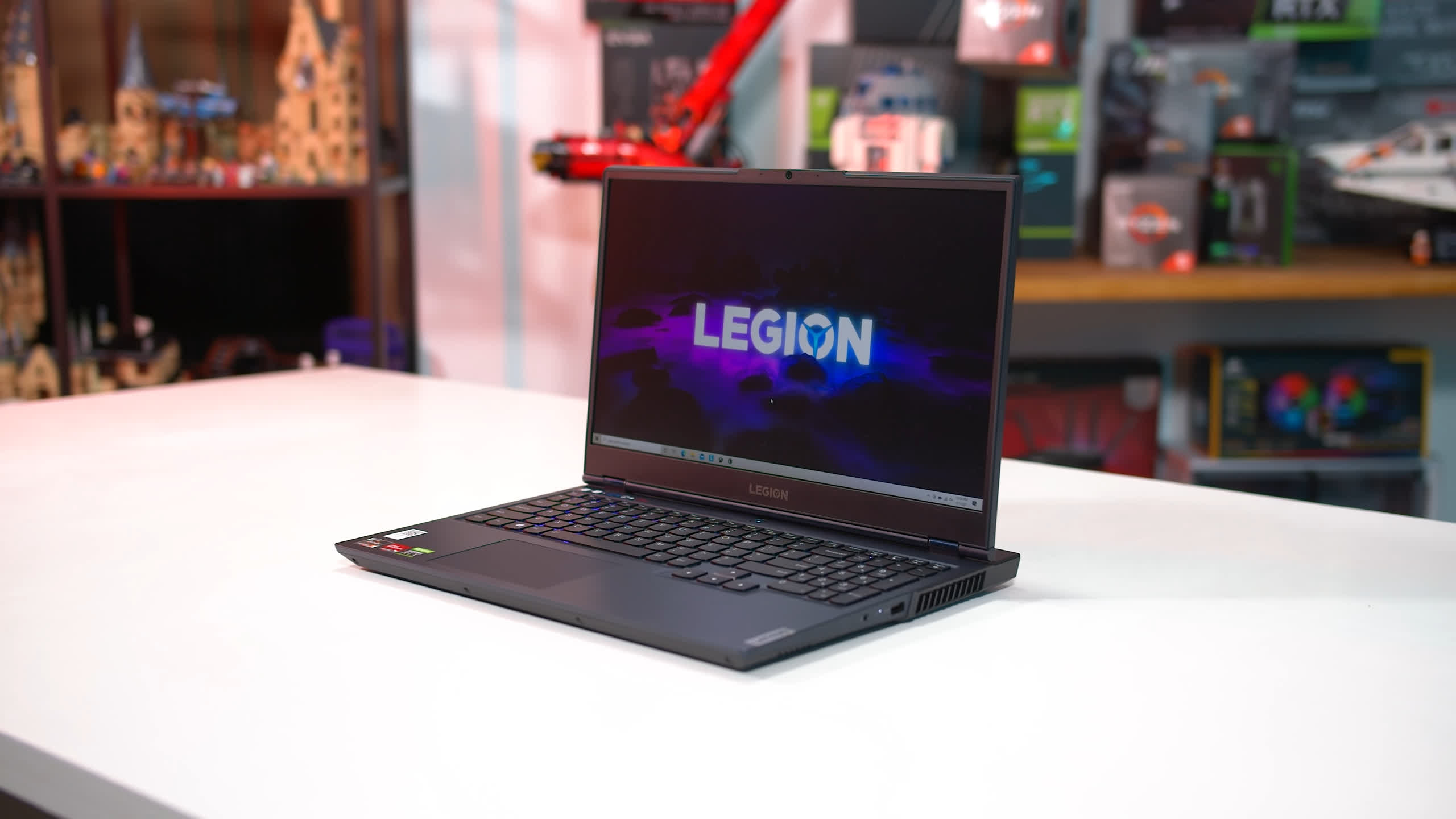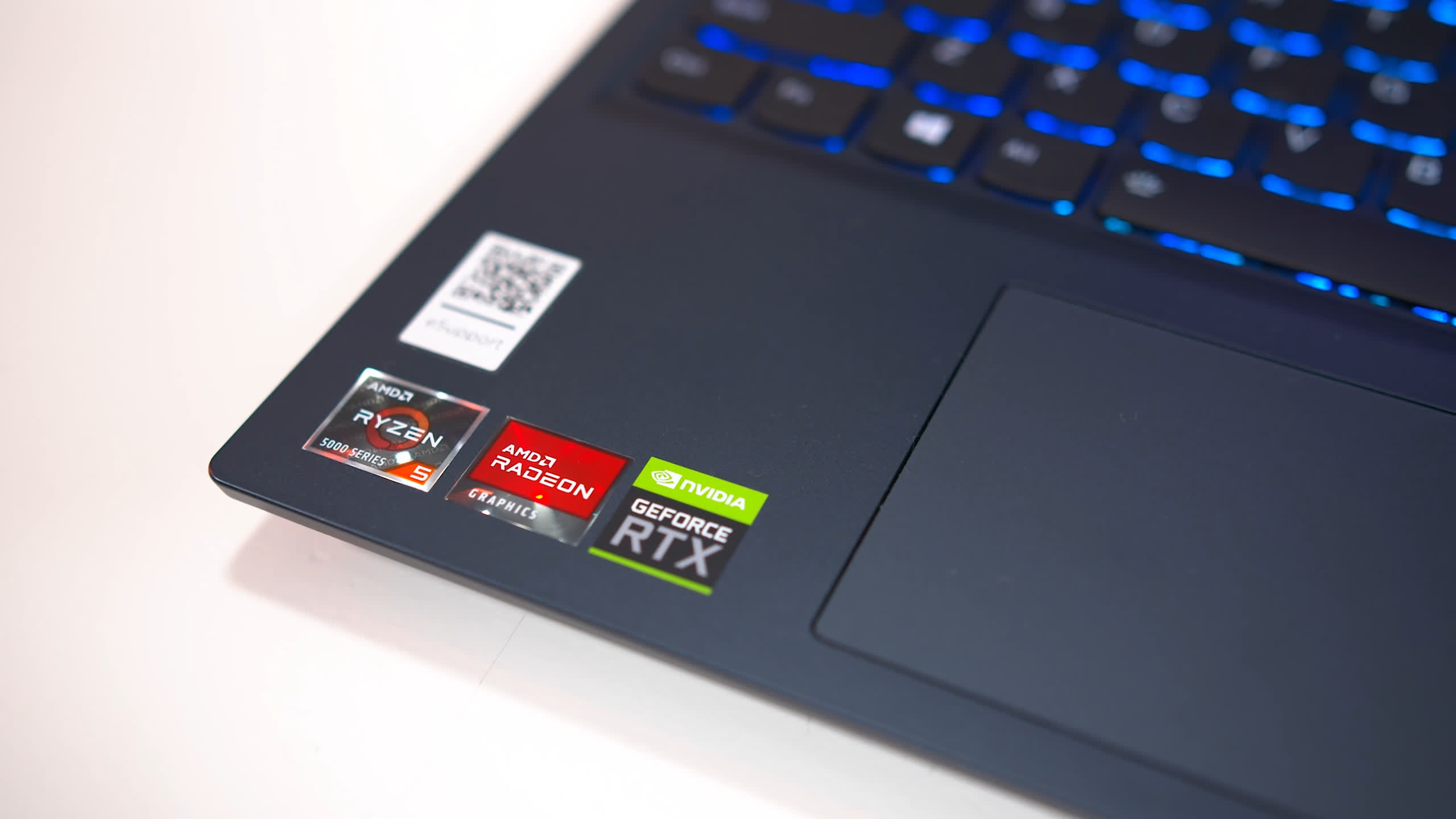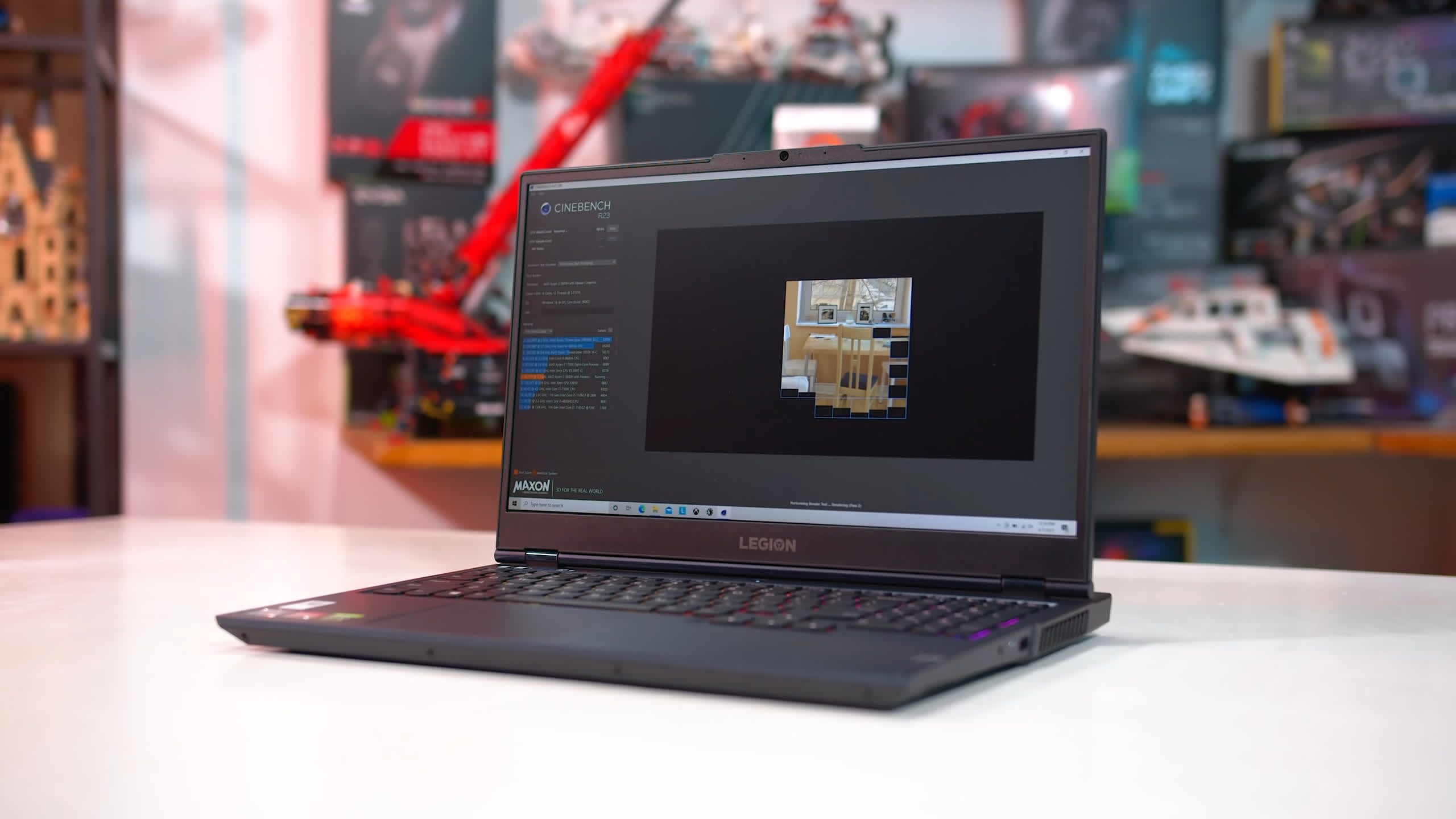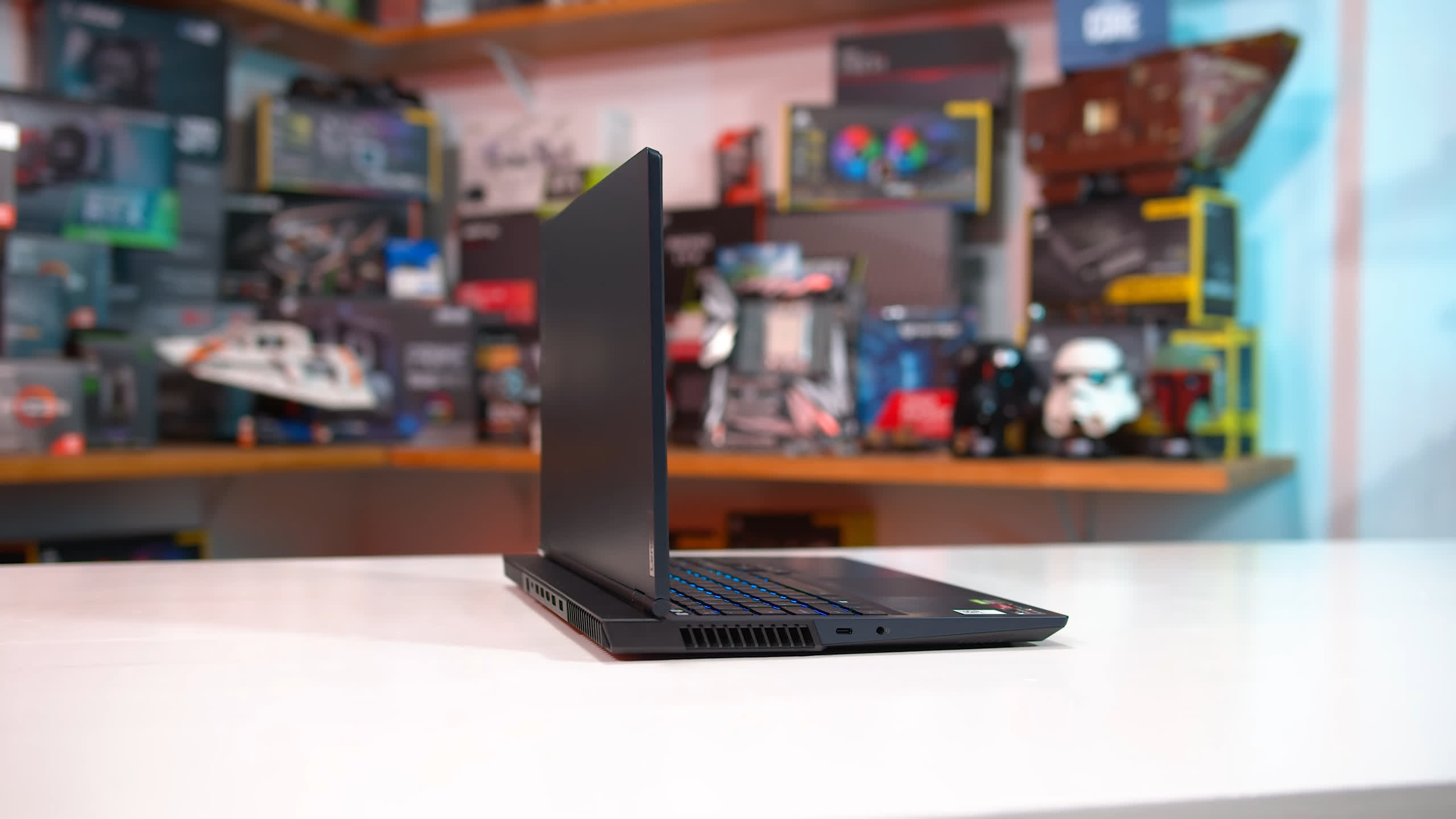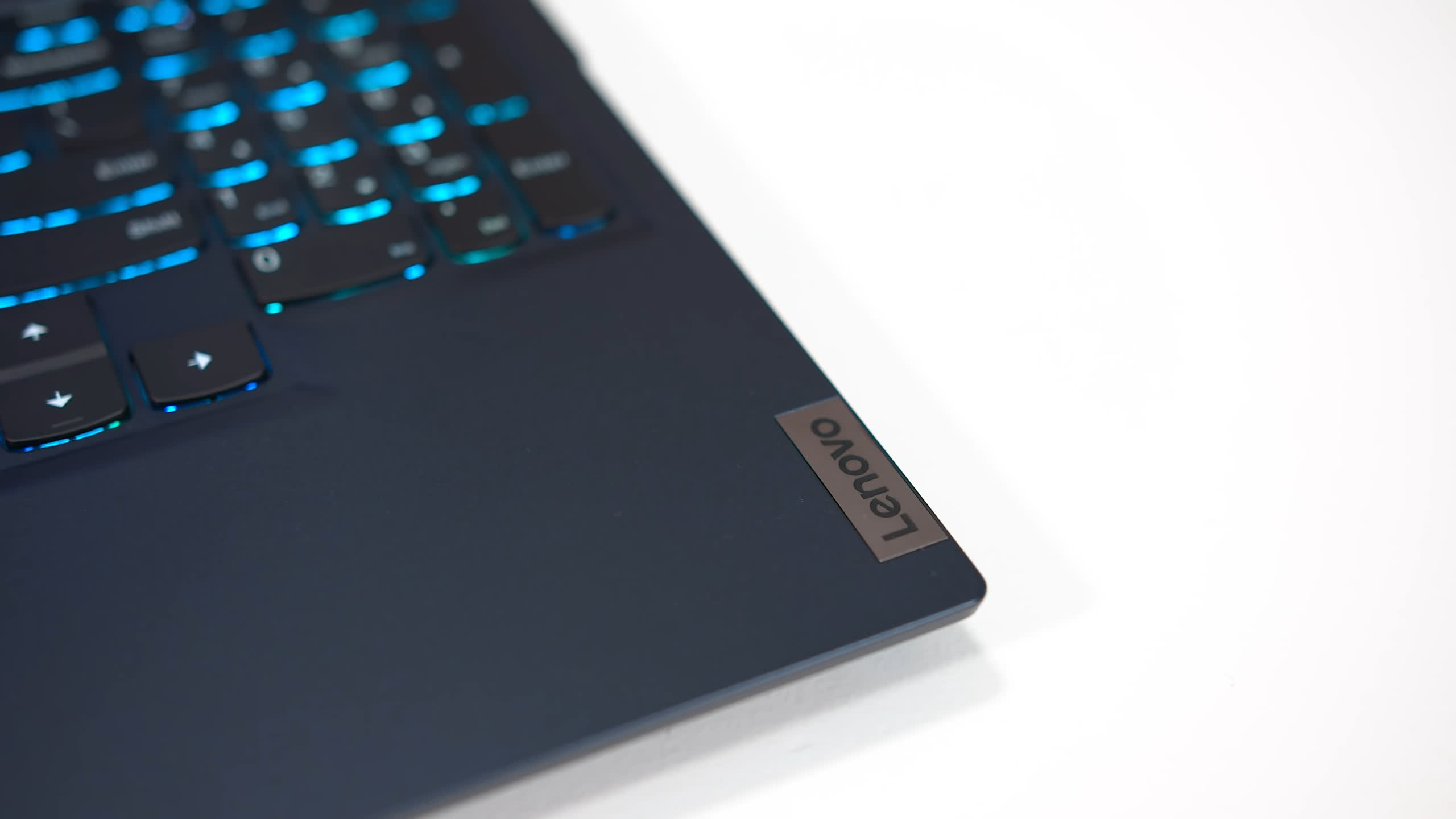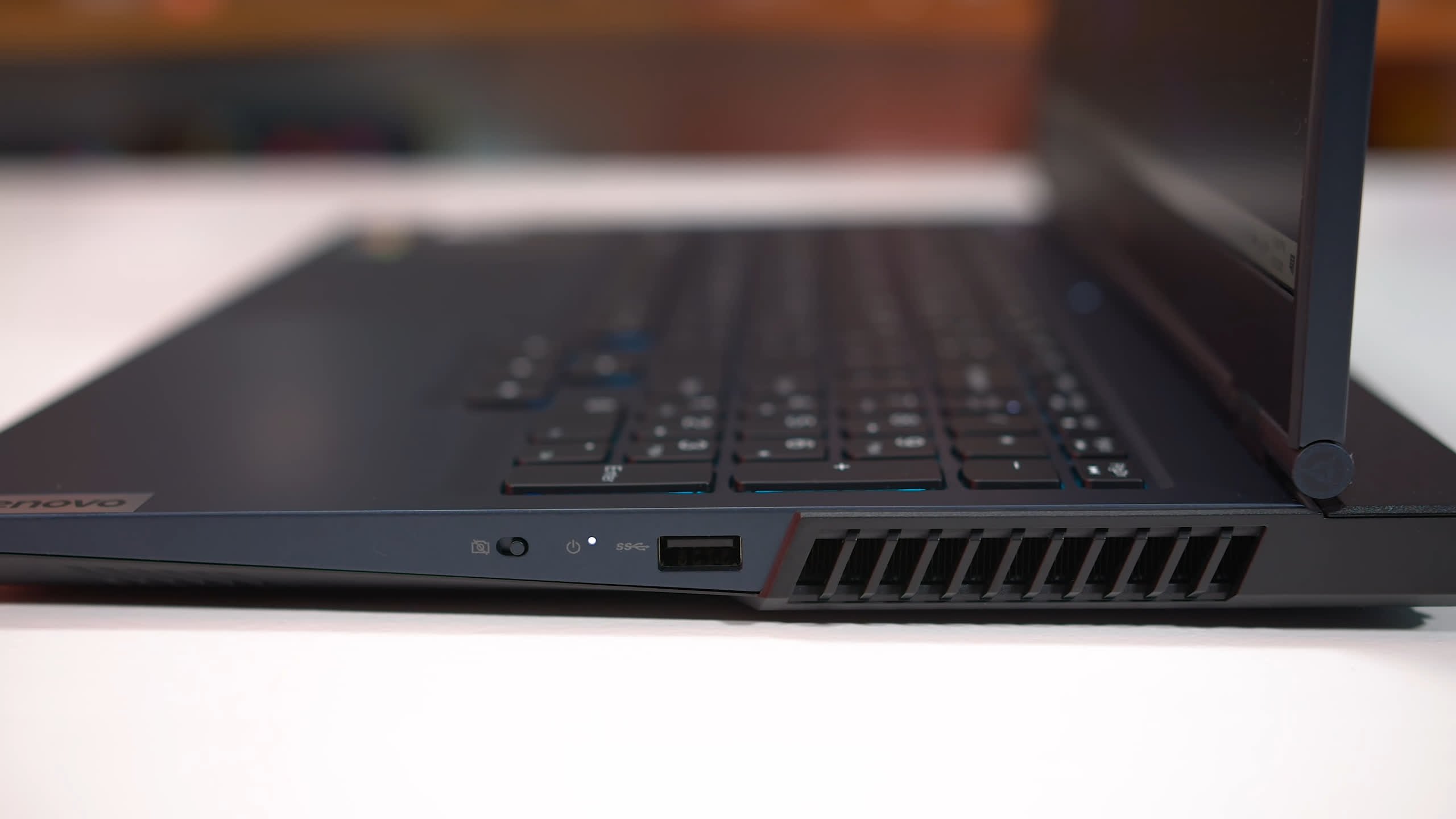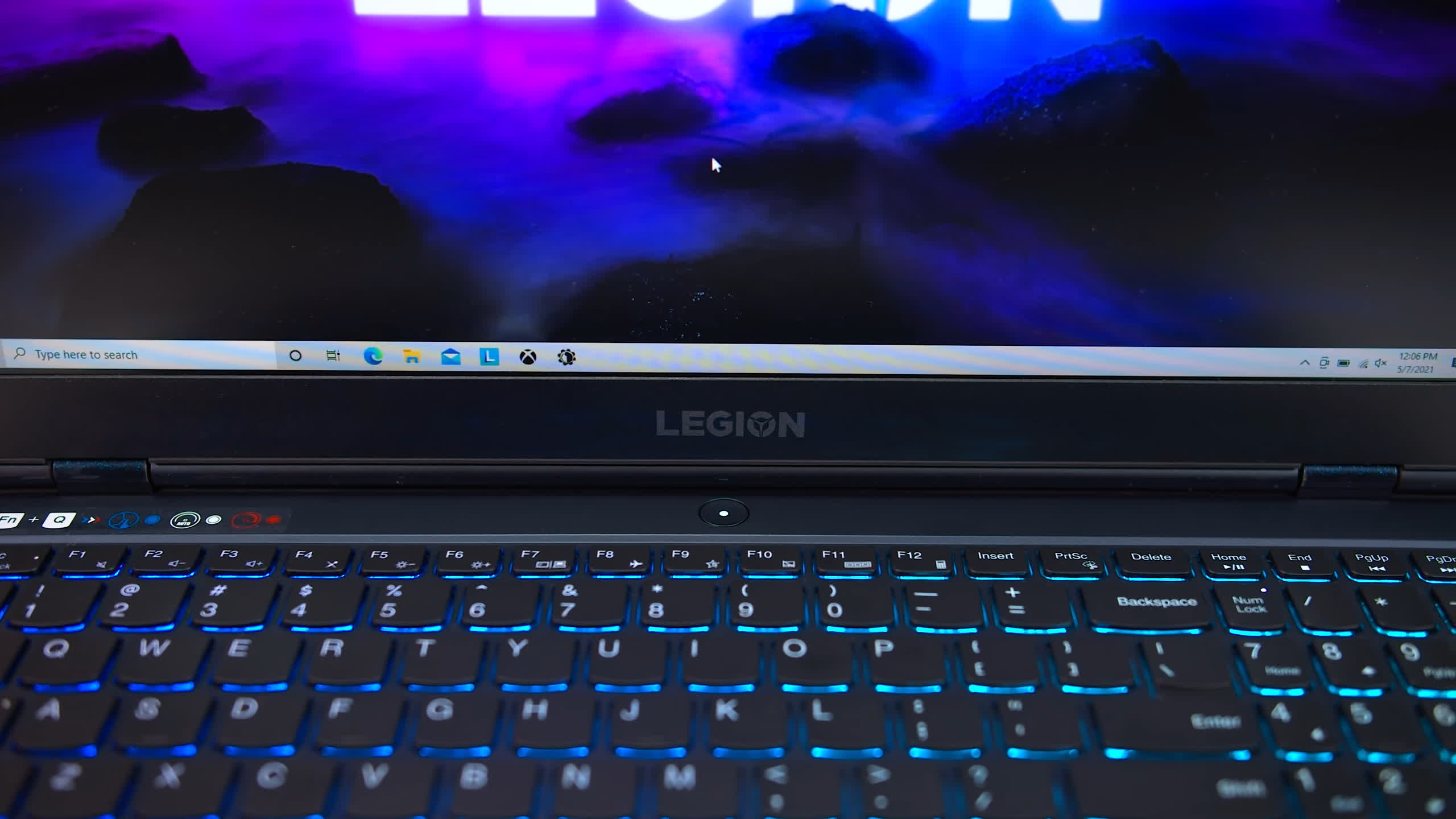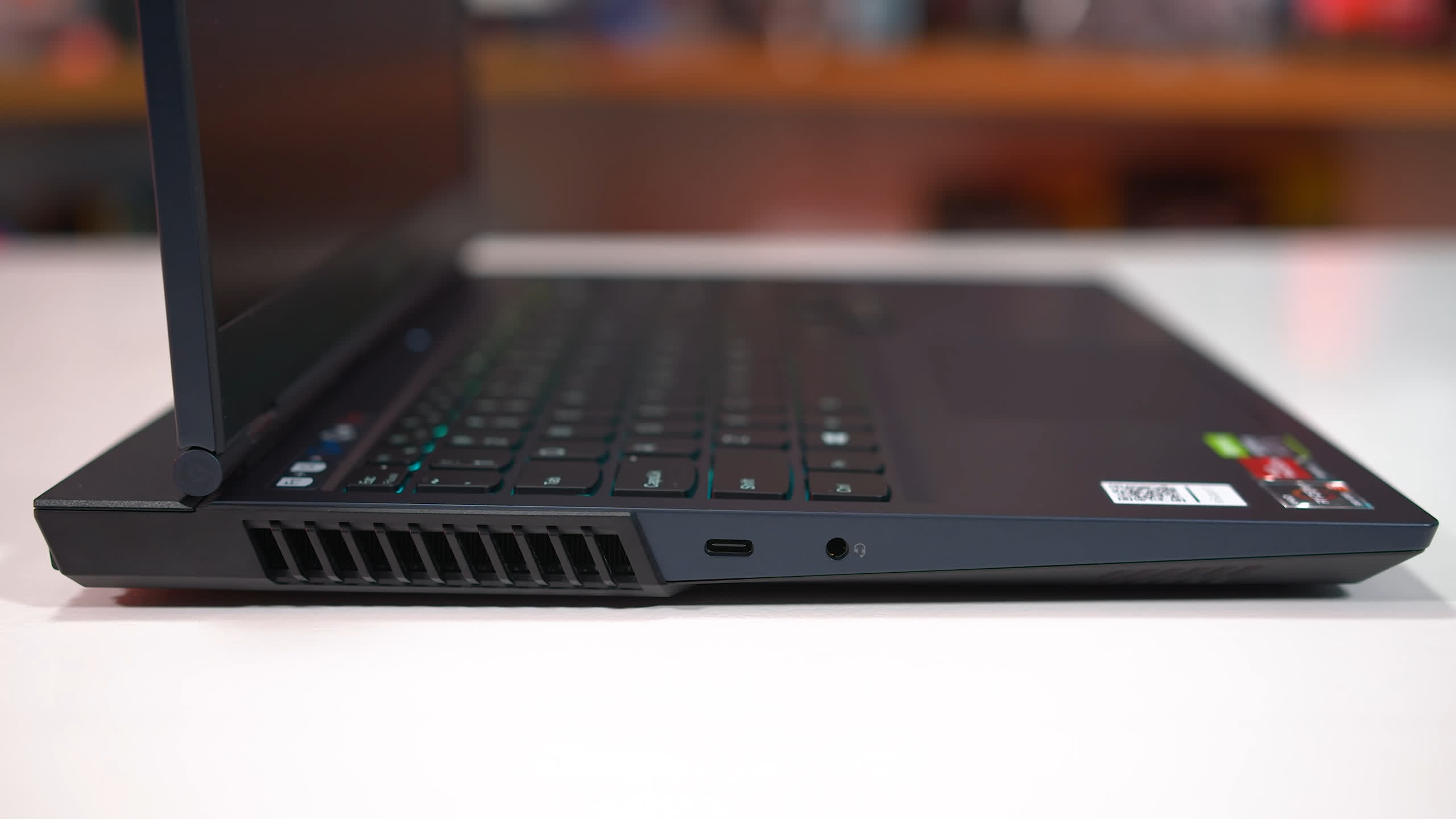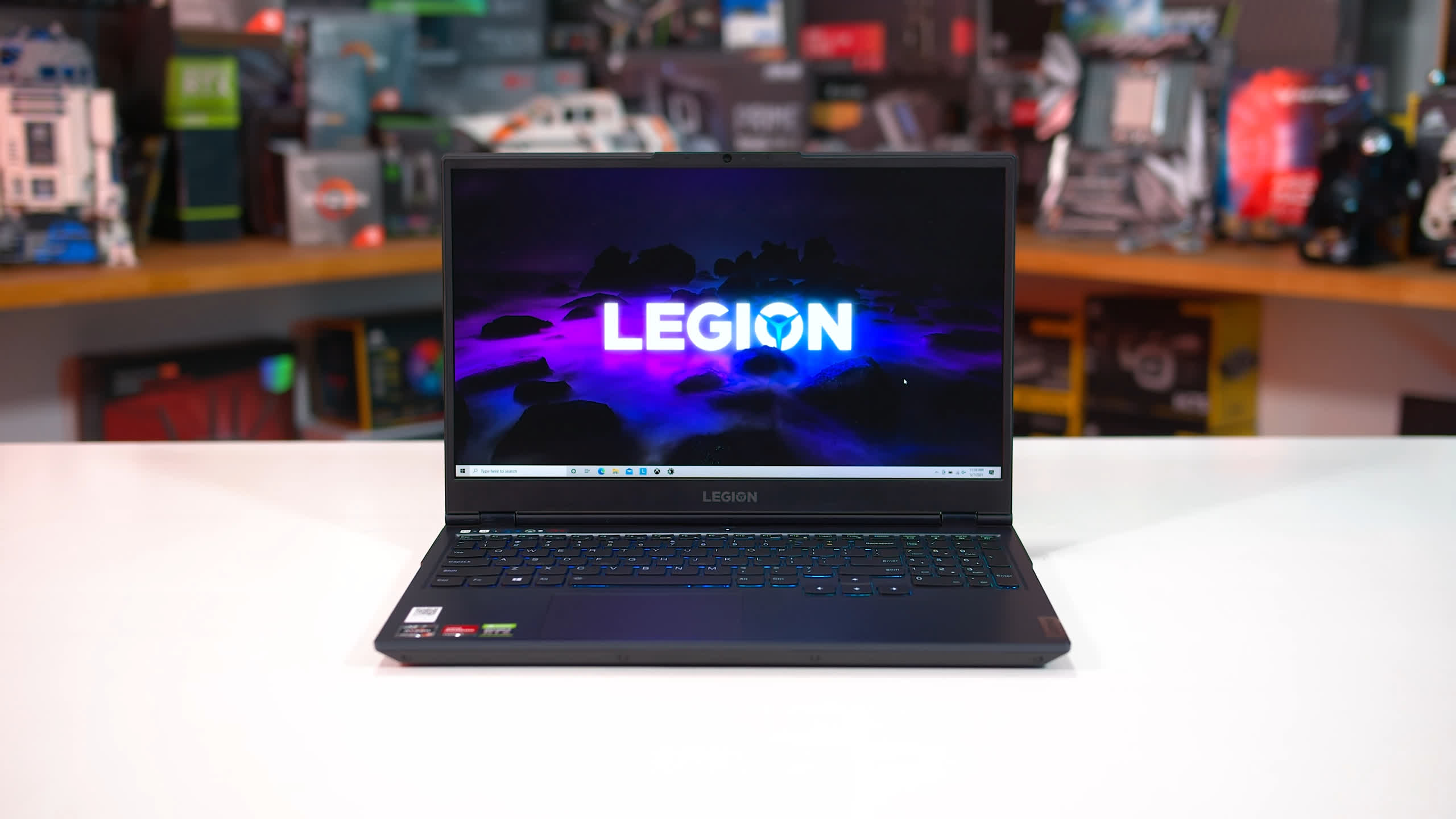The Ryzen 5 5600H is AMD's new mainstream H-series processor for high performance productivity and gaming laptops. Sounds familiar? Just this week Intel was announcing their new Tiger Lake CPUs aiming at those same markets. Those will become available in the coming weeks and months under the 11th-gen Core denomination.
In the meantime, AMD is ready to go with this Zen 3 APU, which is the successor to last year's sleeper hit in the entry-level gaming laptop market, the Ryzen 5 4600H. The 4600H ended up as one of the most popular options among buyers in the sub-$1000 laptop market.
We've already talked extensively about Zen 3 processors on both the desktop and most recently laptop APUs. But the basics you need to know are: the Ryzen 5 5600H is a 6 core, 12 thread processor that uses the latest Zen 3 architecture. Compared to last generation parts, Zen 3 brings better IPC, a unified core complex with double the L3 cache, and some mobile specific optimizations for improved better battery life and higher clock speeds.
The 5600H is the most basic CPU on offer in the Ryzen Mobile 5000 H-series, with its six cores clocked up to 4.2 GHz boost from a 3.3 GHz base - slightly higher clock speeds than we saw with the 4600H.
There's also 19MB of total cache, split into 16MB L3 and 3MB L2, plus an integrated Vega GPU with 7 compute units clocked up to 1.8 GHz. Today's review doesn't cover the iGPU in significant detail as the vast majority of Ryzen 5 5600H laptops will also feature a discrete GPU. The default TDP has been set at 45W, all of this built on TSMC's 7nm process node.
As a Ryzen 5 part, we should mostly see this CPU in entry-level to mid-range gaming laptops, similar to the previous generation. Think your GTX 1650 Ti systems, GTX 1660, and the new RTX 3050 and RTX 3060.
Higher tier CPUs like the Ryzen 7 5800H will typically be paired with the RTX 3070 and above. AMD doesn't publish SKU pricing for laptop chips, but based on what we've seen from OEMs, the 5600H appears to remain an affordable processor with a set of decent laptops to choose from.
For today's testing, we bought a Lenovo Legion 5 laptop that features the Ryzen 5 5600H, courtesy of Elite subscribers on TechSpot and Patreons on Hardware Unboxed. Anyway, this laptop was one of the first we saw to use the 5600H with an asking price of $1,550.
Other internal hardware includes 16GB of dual-channel DDR4-3200 memory, a GeForce RTX 3060 Laptop GPU, 512GB SSD, a decent quality 1080p 165Hz IPS display with 100% sRGB coverage, and an internal 80 Wh battery.
Seems like a perfectly fine laptop, but this isn't a laptop review, we're mostly just interested in how that hardware performs.
Like all of our H-series laptop coverage, we've tested the Ryzen 5 5600H with its default long-term power limit of 45W, which is how the Legion 5 comes configured out of the box in its "Balanced" power profile.
This mode features a boost period of 54W for several minutes, before dropping down to 45W, in keeping with most other Ryzen H-series laptops we've tested so far. In this mode the GPU runs at 80-95W.
Potential buyers of the Legion 5 should note that there's a performance mode which increases both the CPU and GPU power limits, the CPU up to over 65W, and the GPU up to 115-130W. We didn't use this mode for testing to keep things apples to apples with other CPUs we've tested.
On top of this, the Legion 5 also supports Nvidia's Advanced Optimus, however for our CPU limited game testing we opted to disable this and run the GPU always through Optimus to again give us comparable data with other systems we've tested.
Benchmarks
Kicking off our benchmark data with Cinebench R20, the Ryzen 5 5600H provides a healthy performance gain over the previous-gen 4600H. In this multithreaded test, the 5600H is 16% faster, which is solid for a year-on-year improvement.
This allows the 5600H to sneak ahead of the Core i9-10980HK running at 45W, while beating the Core i7-10870H by 21%, and the six-core Core i7-10750H by 47%.

While the gap to the 4800H has closed with this new six-core design, the 5600H still ends up around 20% behind the 5800H, just in case you were wondering if an upgrade to the Ryzen 7 part is worth it.

One of the big areas of improvement for Ryzen 5000 is in single-thread performance. The 5600H only clocks up to 4.2 GHz, so it isn't as chart topping as the Ryzen 9 5980HS, however it manages a 20% performance increase over the 4600H, and falls just 4% behind the slightly higher clocked 5800H.
Intel's 10th-gen H parts can't keep up, although the Tiger Lake Core i7-11370H with its 4.8 GHz turbo is roughly 10% faster, so there will be quite a battle when Intel's Tiger Lake H45 processors are ready for market.

Here are the Cinebench R23 results which fall into a similar pattern as Cinebench R20. In case you are wondering, it takes a Core i9-10980HK running at approximately 65W to match the Ryzen 5 5600H running at 45W, and for the Core i7-10870H you need to double its stock PL1, so in terms of efficiency the 5600H is noticeably superior and this allows it to run at these high performance levels in slimmer, quieter systems with less substantial coolers.

In Handbrake the Ryzen 5 5600H and Core i9-10980HK deliver roughly equivalent performance, so it's impressive that AMD's entry-level processor is as good in this multithreaded workload as Intel's previous-gen flagship CPU. This is down to a modest 9% performance improvement moving from the 4600H to 5600H.

Blender delivers basically the same results as Handbrake with these new Ryzen 5000 processors: the 5600H is 8% faster than the 4600H, and that allows it to offer equivalent performance to Intel's 10980HK. This makes it significantly faster than the Core i7-10750H as an example, we're looking at 40% more performance from the Ryzen 5 processor.

For code compilation, Ryzen 5000 processors are an excellent choice from the top of the stack to the bottom. The Ryzen 5 5600H delivers 13% better performance in this GCC compilation than the 4600H, making it faster than all Intel 10th-gen designs and thanks to superior lightly threaded performance, a bit faster than even the 4800H.

In the longer Chromium compilation the 5600H delivers about the same performance as Intel's Core i7-10870H, and just a 6 percent gain on the 4600H. Still a good result compared to the competition, but not as solid as some of the other benchmarks we've been looking at.

MATLAB used to be the nemesis of AMD laptop APUs but that's no longer the case with the Ryzen 5 5600H, which increases performance by a decent 10% in this benchmark compared to the 4600H. This allows it to sit in the range of Intel's 8-core Core i7 parts, and faster than the six core i7-10750H.

Microsoft Excel gets an 8 percent performance increase going from the R5 4600H to the R5 5600H, but ultimately this is one of the weaker results for this processor, only matching the 10750H here. The 5600H therefore ends up 23% slower than the 5800H in this workload.

In PCMark 10's Applications test which measures Microsoft Office and Edge web browsing performance, the 5600H benefits significantly from increased single-thread performance. This new Zen 3 part is 24% faster than the 4600H that came before it, which allows it to compete much more strongly with Intel's 10th and 11th generation processors.

In 7-Zip compression we do see a gen-on-gen performance improvement: the 5600H is 17% faster than the 4600H which is a pretty solid result all things considered. However when compared to Intel processors this only allows the 5600H to roughly match the 10750H, whereas AMD's 8-core designs like the 5800H are able to pull more significantly ahead.

But in decompression Ryzen really is a dominant chip. The 5600H is still 16% faster than the 4600H so very close to what we saw in compression, but this speed bump allows the 5600H to match the 10980HK and pull well ahead of the 10750H. So like we've seen with Ryzen 7 parts over the last 18 months, decompression is best on an AMD CPU.

Acrobat PDF exporting is another good single-threaded benchmark for laptops and once again the new Zen 3 design is hugely faster than Zen 2: the 5600H is 25% faster than the 4600H in this workload. This allows it to slightly outperform parts like the Core i7-10870H which run up to 5 GHz, despite a significant clock speed deficit, however the newer 11370H with its Willow Cove CPU core design is faster again.

With weaker single-thread performance, Ryzen 4000 processors weren't well suited to Adobe Photoshop. But that's not the case with the 5600H. This mainstream processor is marginally faster in this workload than Intel's Core i7 processors and while it doesn't have the same levels of performance as the Ryzen 7 range, it's still quite a competitive part for photo editing in this popular tool.

Davinci Resolve Studio is where we begin to get some GPU heavy applications. Nestled in the middle of the graph is where you'll find the Ryzen 5 5600H and RTX 3060 Laptop 80W GPU configuration, and honestly this is a pretty solid result for a mainstream laptop.
This system is as good as a Core i7-10870H laptop with the same GPU inside, which typically is a more expensive sort of setup. Outside of that you really need more GPU horsepower to get faster results in this benchmark from Puget Systems.

In Adobe Premiere using the Puget Systems export test we see quite similar results to Davinci Resolve. The Ryzen 5 5600H is slightly behind the Core i7-10870H laptop with the same GPU inside so not a bad result given the core count discrepancy, and this is a workload that uses hardware accelerated video encoding.
Performance Comparisons
Ryzen 5 5600H vs. Ryzen 5 4600H

Looking at head to head comparisons it's clear that the Ryzen 5 5600H is providing a decent gen-on-gen performance increase over AMD's prior six-core CPU, the Ryzen 5 4600H. This is in the ballpark of what we saw previously comparing the 5800H to the 4800H, if a little better in some applications. Generally we are seeing a modest 5 to 15 percent gain in multi-threaded workloads, while single-threaded gains are quite impressive, in the 20% region or more.
Ryzen 5 5600H vs. Ryzen 7 5800H

There is still a substantial gap to the next highest processor in AMD's line-up though, the Ryzen 7 5800H. The 5600H performs well in a lot of workloads, but still ends up 20% slower than the 5800H at the same power level as the 5800H packs more 2 more cores, and generally what we've seen is that higher core count designs are much more efficient in power constrained laptop form factors.
Ryzen 5 5600H vs. Core i7-10750H vs. Core i7-10870H


Compared to Intel processors, the Ryzen 5 5600H is quite a bit faster than the Core i7-10750H for the most part, now there are some workloads where the two parts are almost equal, but mostly the Ryzen part is faster. Then as we move up Intel's 10th-gen stack to something like the 10870H, in a lot of cases the Ryzen 5 part is still quite a bit faster, but there are also some losses in here too depending on the workload.
Ryzen 5 5600H vs. Core i7-11370H

Given that we don't have 11th-gen Tiger Lake H45 processors yet and they are expected to launch soon, I wouldn't be reading too much into the 10th-gen results for now.
Here's a quick look at how the 5600H compares to the quad-core i7-11370H and like I said in the review of that part, while Intel does deliver impressive single-threaded performance with Tiger Lake, the 11370H really is more like a Core i3 processor given how easily it's beaten by the 5600H in multi-threaded applications.
Gaming Performance
Generally speaking, when looking at the Ryzen 5 5600H's gaming performance with the RTX 3060 I saw one of three things, so let's work through them...

The first is that in CPU limited titles, the Ryzen 5 5600H performs okay but not amazingly. In Hitman 3's Dartmoor benchmark for example, the 5600H with the RTX 3060 is a little bit faster than a last generation 4800H system with the RTX 2060, and about 8 percent slower than a Core i7-10870H configuration.
This is better than having a low-end quad-core like the Core i7-11370H, and it would have been nice to have a 10750H system in here, too, but at the end of the day this is to be expected as the 5600H doesn't always beat a part like the 10870H even in productivity tests.

Here's another example of similar behavior in Death Stranding, which is also reasonably CPU demanding at 1080p. Again, 5600H with the RTX 2060 is a bit faster than our last-gen 4800H plus 2060 configuration, but about 6% behind the Core i7-10870H that uses the same GPU configuration.

The second sort of performance results we saw were equivalent performance when comparing the Ryzen 5 5600H and Core i7-10870H. This seems to occur in some titles that are CPU demanding, and some titles that are heavy on the GPU more than CPU. One example that we're looking at here is Assassin's Creed Valhalla, the 5600H does a decent job in this title.

Another example is Borderlands 3, a title we generally associate with being CPU demanding, yet the Ryzen 5 5600H holds its own against the Core i7-10870H when both systems are configured with the same GPU. So that's a promising result given that Ryzen 5 laptops are typically cheaper than Core i7 laptops, especially those with the 10870H inside.

CS Go running Low settings is a nice third example. It doesn't matter what GPU you have when playing this title as you'll likely be CPU bound and once again the Ryzen 5 5600H performs quite well.

The third scenario were a number of situations where the Ryzen 5 5600H was faster than the Core i7-10870H running the same RTX 3060 GPU. At times, like in Control, it seems that the efficiency of the 5600H comes to play with Nvidia's Dynamic Boost, allowing the RTX 3060 to more frequently hit the 95W ceiling in this configuration, with the Ryzen CPU running at reduced power. In comparison the 10870H isn't as capable of lowering power levels without losing performance, and so the GPU sits more around 85W.

In gaming the comparisons we have right now aren't amazing, but this should give you an idea of how the Ryzen 5 5600H stacks up in comparison to the Core i7-10870H, which is a higher tier part from the previous generation, but overall both configurations do trade blows. The real test will be putting the 5600H up against a Tiger Lake H45 chip in the coming months.
What We Learned
Overall, the Ryzen 5 5600H is another impressive Ryzen Mobile 5000 processor. Like other models in the line-up that we've reviewed so far, the 5600H isn't the same revolutionary step that AMD introduced a year ago, but it does present a solid iteration that brings better performance in most areas.
Compared to its direct predecessor, the Ryzen 5 4600H, the 5600H is roughly 10 to 15 percent faster in multi-threaded workloads and over 20% faster in single-threaded tests, which is respectable for a mainstream laptop processor.
This is achieved at the same power levels, which combined with enhancements to power gating and idle power, makes new generation chips more efficient. AMD continues to address weaknesses in their processors and the single-threaded gains are a huge part of the appeal of Zen 3.
The Ryzen 5 5600H should be well positioned for budget-friendly laptop builds in the entry-level and mid-range of the market. Our gaming results seem to show that it's quite capable of handling a GPU like the RTX 3060, and there's plenty of performance on offer for productivity, especially if you're upgrading from any previous-gen Intel-based laptop.
At the same time, there's a sizable performance gap to the Ryzen 7 5800H, which may make upgrading one tier higher worth it depending on the pricing of the laptop configurations you're looking at.
We could spend more time in this conclusion breaking down how the 5600H competes against Intel's current offerings, but we don't feel that's necessary considering Tiger Lake H45 processors are just around the corner.
So whatever we say here now won't be current in a matter of weeks, when those new Intel CPUs arrive (and we'll be ready to test them). AMD looks well positioned for the battle though, considering the 5600H is competitive in gaming, and can outperform even Intel's flagship Core i9-10980HK in some productivity workloads.
Obviously, if you are deciding between 10th-gen and a 5600H, I'd go the Ryzen 5600H in most instances, but soon we'll have more options to choose from.
As of writing, the main challenges facing AMD are not related to performance, but their platform. Supply constraints are still impacting AMD's ability to flood the market with Ryzen Mobile 5000 APUs, and there's no clarity on when that will subside, so it may prove difficult to obtain a 5600H laptop.
On top of that, the reality is that Intel has more OEM design wins, and there may be a feature on an Intel system (like Thunderbolt) that just isn't available on an AMD machine. We're seeing higher-tier GPUs used in AMD laptops this generation, but there's work to be done on that front and it won't get any easier when Intel readies their latest laptop CPUs to market.
